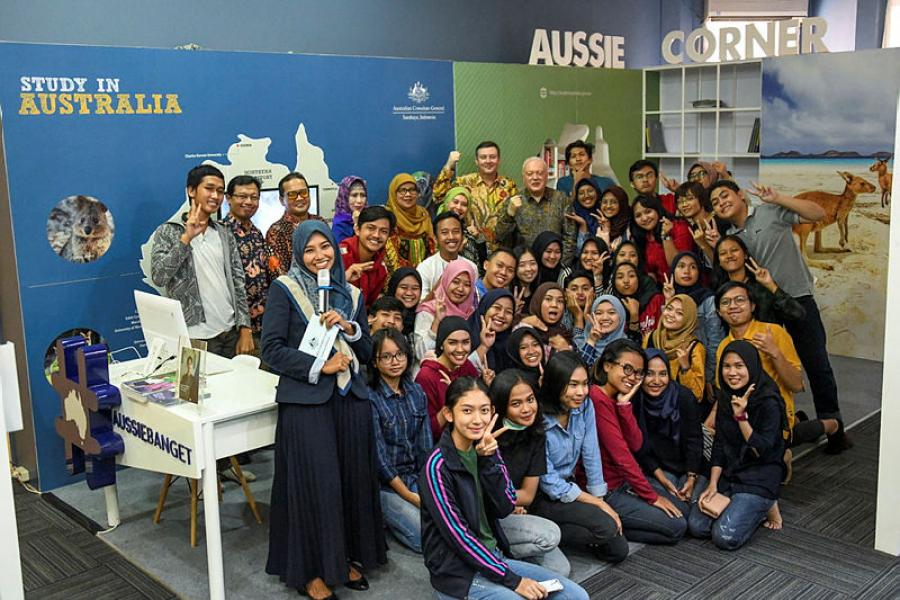The Department of Education, Skills and Employment (DESE) is working with a range of stakeholders domestically and internationally to diversify Australia’s international education sector so this key sector is adaptable, resilient and competitive into the future. Diversification of the international education sector will help maintain Australia’s global competitiveness and guide the sector’s recovery during and beyond the COVID-19 pandemic.
The Council for International Education, chaired by the Minister for Education, the Hon Alan Tudge MP, is currently developing a new ten-year strategy for international education in Australia. The key focal points of diversification include innovating education through offshore and online delivery, ensuring Australia is attracting students from diverse source markets, and promoting a range of fields of study and a mix between urban and regional study locations.
Indonesia’s economic growth trajectory, growing young population, and identified need for quality education and training make it a key partner country for Australia’s international education sector.
Australia engages with Indonesia to foster deeper connections through education policy alignment, and to create mutually beneficial opportunities for trade in education services.
Australia has a strong track record in the delivery of high-quality transnational education across the Asia Pacific, with overseas branch campuses of leading Australian universities operating successfully for many years. These campuses are an important bridge between Australia and the host countries, not only through educating local and international students seeking an Australian qualification, but in the role they play in their local communities.
DESE’s policy role is to support Australian higher education providers to deliver higher education services in Indonesia under the Government of Indonesia (GoI)’s Ministerial Regulation 53 of 2018 which allows for foreign higher education institutions to establish a physical presence (such as a campus) in the country. The department actively supports education providers; advocating our sector’s interest to improve the regulatory environment, providing advice to improve their understanding of Indonesia’s regulatory environment, and building Indonesia’s capacity to support institutional decision-making on transnational education in Indonesia.
Several Australian universities have been engaging with the GoI to establish an in-country presence in Indonesia, and Monash University is a good example. Its years of concerted engagement have led to GoI’s approval to establish a campus in Jakarta which also happens to be Indonesia’s first, and as yet, only foreign university campus. The Jakarta-based campus will have its first intake of students in October this year and will be an innovative, STEM and research-intensive institution that focuses on postgraduate and executive education.
This milestone has positioned Australia as a partner serious about working with Indonesia as it expands its economy and lifts living standards. The campus will be instrumental in educating future generations of Indonesians in the convenience of their home country through people-to-people links that will bring mutual benefit to both our nations. DESE played a key role in supporting Monash through the process and is continuing to work with several other Australian universities on scoping campus opportunities in Indonesia.
With the first Australian university campus about to open in Indonesia, and possibly more to follow with GoI’s agreement, market access opportunities also exist for Australia’s vocational education and training (VET) providers secured through the Indonesia-Australia Comprehensive Economic Partnership Agreement. This allows majority (up to 67 per cent) of Australian ownership in joint VET ventures. The department has been encouraging and supporting Australian VET providers to scope out joint venture opportunities in Indonesia as the country works to meet its national productivity goals of upskilling an estimated 57 million Indonesians by 2030.

